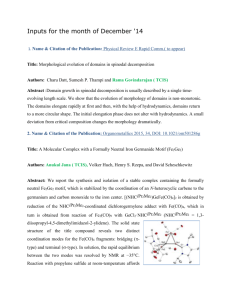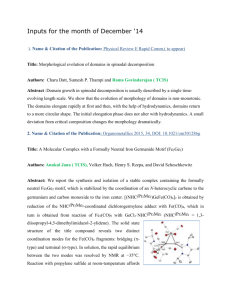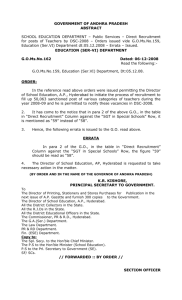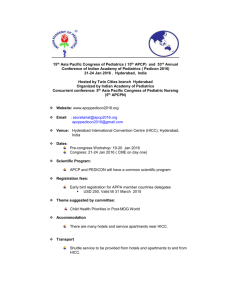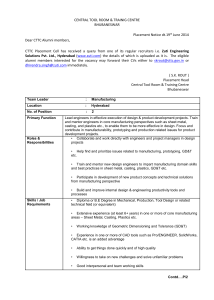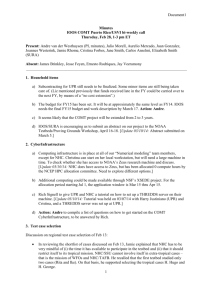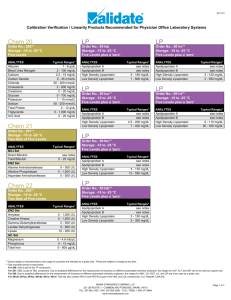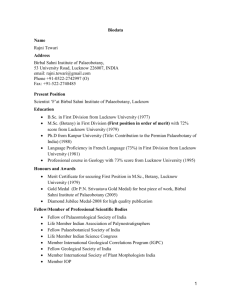PMOReportOct
advertisement
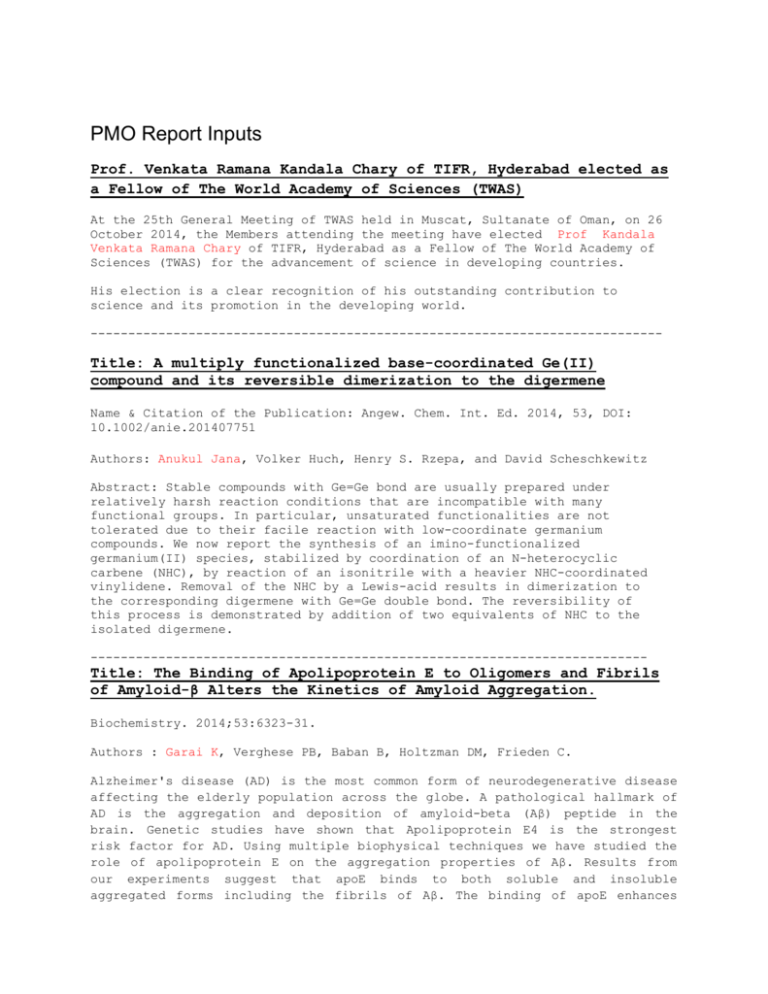
PMO Report Inputs Prof. Venkata Ramana Kandala Chary of TIFR, Hyderabad elected as a Fellow of The World Academy of Sciences (TWAS) At the 25th General Meeting of TWAS held in Muscat, Sultanate of Oman, on 26 October 2014, the Members attending the meeting have elected Prof Kandala Venkata Ramana Chary of TIFR, Hyderabad as a Fellow of The World Academy of Sciences (TWAS) for the advancement of science in developing countries. His election is a clear recognition of his outstanding contribution to science and its promotion in the developing world. ---------------------------------------------------------------------------- Title: A multiply functionalized base-coordinated Ge(II) compound and its reversible dimerization to the digermene Name & Citation of the Publication: Angew. Chem. Int. Ed. 2014, 53, DOI: 10.1002/anie.201407751 Authors: Anukul Jana, Volker Huch, Henry S. Rzepa, and David Scheschkewitz Abstract: Stable compounds with Ge=Ge bond are usually prepared under relatively harsh reaction conditions that are incompatible with many functional groups. In particular, unsaturated functionalities are not tolerated due to their facile reaction with low-coordinate germanium compounds. We now report the synthesis of an imino-functionalized germanium(II) species, stabilized by coordination of an N-heterocyclic carbene (NHC), by reaction of an isonitrile with a heavier NHC-coordinated vinylidene. Removal of the NHC by a Lewis-acid results in dimerization to the corresponding digermene with Ge=Ge double bond. The reversibility of this process is demonstrated by addition of two equivalents of NHC to the isolated digermene. -------------------------------------------------------------------------- Title: The Binding of Apolipoprotein E to Oligomers and Fibrils of Amyloid-β Alters the Kinetics of Amyloid Aggregation. Biochemistry. 2014;53:6323-31. Authors : Garai K, Verghese PB, Baban B, Holtzman DM, Frieden C. Alzheimer's disease (AD) is the most common form of neurodegenerative disease affecting the elderly population across the globe. A pathological hallmark of AD is the aggregation and deposition of amyloid-beta (Aβ) peptide in the brain. Genetic studies have shown that Apolipoprotein E4 is the strongest risk factor for AD. Using multiple biophysical techniques we have studied the role of apolipoprotein E on the aggregation properties of Aβ. Results from our experiments suggest that apoE binds to both soluble and insoluble aggregated forms including the fibrils of Aβ. The binding of apoE enhances the stability of the Aβ aggregates. We propose that increased risk of AD by apolipoprotein E4 arises due to enhanced stability of the toxic aggregates of Aβ. This work has recently been accepted for publication in Biochemistry. The same has been chosen by the editors to be highlighted in the website of Biochemistry. ------------------------------------------------------------------------------------------------------------------------------------------ Outreach activities at TIFR, Hyderabad: 1. October 11, 2014 11th and 12th standard students from Glendale Academy, Hyderabad, visited TCIS along with three teachers. They spent an entire morning at TCIS, during which they heard short talks from Profs. Sriram Ramaswamy and Rama Govindarajan and Dr. M. Anand, and then visited the laboratory of Dr. Anukul Jana where they saw an experiment on IR spectroscopy. The rest of the time was spent with Dr. Shubha Tewari and TCIS students on demonstrations and experiments illustrating the unusual properties of soft matter. 2. October 26, 2014 Prof. R. Rajaraman, emeritus Professor of Theoretical Physics at Jawaharlal Nehru University, New Delhi, spoke as part of the TCIS series for the general public, “Sawaal-Jawaab: Conversations on Science”. The topic of the well-attended discussion was “Protecting civilians against nuclear attack: feasible or not?” 3. July – Oct , 2014 Faculty members Shubha Tewari, Surajit Sengupta, Subodh R. Shenoy, and M. Krishnamurthy taught a course titled "Introduction to the Physical and Chemical Sciences" to students of the integrated BA/MA program at the Tata Institute of Social Sciences, Hyderabad. As part of the assessment for this course, groups of 1 – 3 students undertook to build/carry out small-scale experimental projects which they demonstrated to Shubha Tewari.
